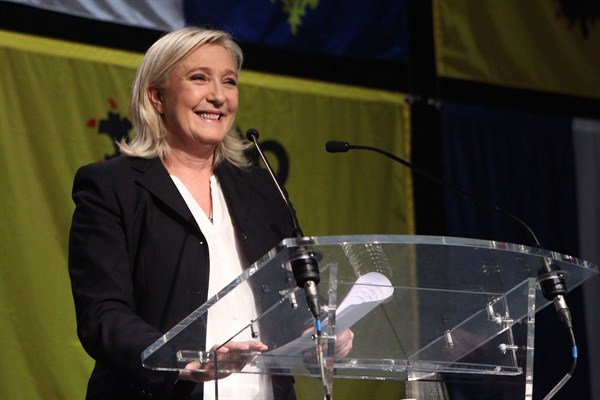Editor’s note: Judah Grunstein is filling in for Richard Gowan, who is out this week.
Two elections yesterday, an ocean apart, upended politics in the nations that went to the polls, with implications for their surrounding regions. In Venezuela, the political opposition won parliamentary elections, dealing the first electoral setback above the municipal and provincial levels to the late Hugo Chavez’s United Socialist Party of Venezuela (PSUV) in more than a decade.* In France, Marine Le Pen’s National Front party (FN) topped the combined voting in first-round elections for regional governments, confirming the party’s entry into the mainstream of French politics.
Both outcomes reflect historical shifts, not only in politics, but also in political styles. The PSUV’s loss in Venezuela, coming on the heels of Mauricio Macri’s election as president of Argentina, signals the end of the 15-year period of domination by South America’s left. The FN’s impressive first-round results can be seen similarly as a warning sign that France’s—and Europe’s—traditional parties of the center-left and center-right are on life support and badly in need of new ideas and approaches. But whereas Venezuela voted to turn the page on Chavez’s populist style, Le Pen’s rise in France illustrates the degree to which populism now poses a very serious challenge to the orthodoxy of political liberalism that emerged out of the immediate post-Cold War period.

